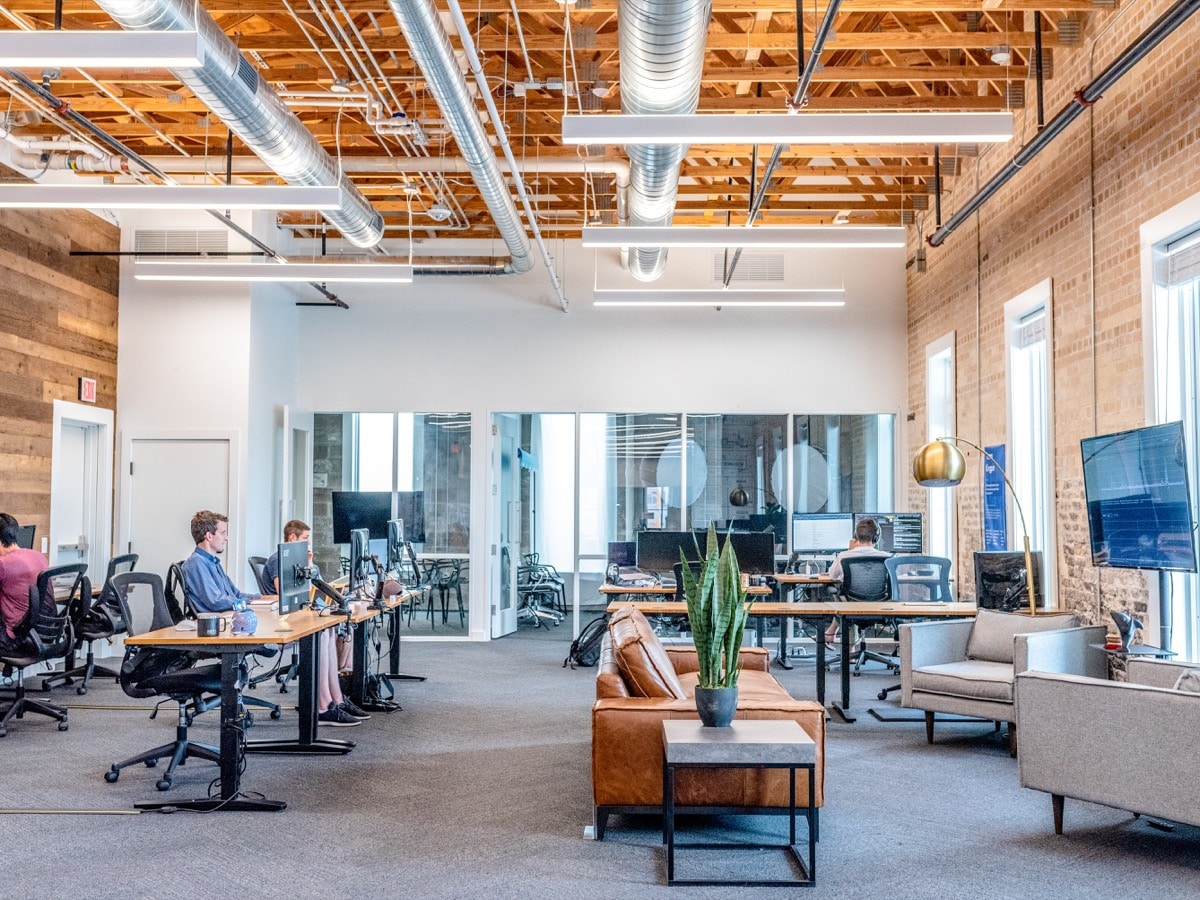Fortune’s Change the World list celebrates businesses that use their creativity and resources not only to boost their own bottom lines, but also to help make the world a better place.
The 2019 list includes 52 companies, 18 of which were included specifically for the work they’re doing to combat environmental and climate problems.
Let’s take a closer look at the depth and range of these companies’ creativity, innovation, and commitment to a healthier planet. Here are eight of the companies on Fortune’s Change the World List doing great work for everyone.
Philips NV
Philips NV makes Fortune’s list for its longstanding commitment to environmentally conscious work at every step of its processes, from financing to powering its final products.
The company is on track to become carbon-neutral in 2020, and its focus on more energy-efficient products like MRI systems and rechargeable batteries allows it to spread its sustainability ethic to households and businesses worldwide.
“I see sustainability both as a moral obligation and a business opportunity,” Philips CEO Frans van Houten told CNBC in April 2019. “I believe we all need to be accountable for how we operate in the world and the consequences we create by doing business.”
Apple
For years, Apple has sought ways to reduce the amount of waste caused by electronics that break or are otherwise discarded. In 2017, the company announced a goal to make all of its products from recycled or renewable materials, a project that is currently under development.
One of Apple’s innovations toward this end is a robotic recycling system. Called “Daisy,” the system takes apart iPhones and sorts them into their component parts for recycling or reuse. At a rate of 200 iPhones per hour, Daisy is more efficient than humans at the breakdown process, allowing the system to provide a larger quantity of components for reuse.
While Apple is making progress, the company still has a long way to go, says Lisa Jackson, Apple’s vice president of environment, policy, and social initiatives. “We have 14 materials we’ve highlighted, and we don’t have equal progress on them,” Jackson says.
“But some of that’s technology. Some of that’s scale. Some of that’s crazy things, like shipping regulations and how you can move materials around. So we have to work on all of those at the same time.”
Its commitment to that work makes Apple a world-changing company.

Qualcomm
5G connectivity supports considerable leaps in innovation, particularly when it comes to smart devices, connected sensors, and the Internet of Things. Its focus on building 5G chips for everything from relay towers to smart devices puts Qualcomm at the top of Fortune’s Change the World list for 2019.
Qualcomm’s approach to 5G includes offering full support for a wide range of 5G speeds and applications, including support for devices, businesses, and individuals making the transition from 4G to 5G, says Qualcomm President Cristiano Amon.
Currently, 5G promises data transfer speeds up to 100 times faster than current systems offer. As data moves faster, so does our ability to understand and analyze information, revolutionizing a vast array of human endeavors.
Intel
Intel leads in one of the most water-intensive manufacturing businesses in the world: semiconductor manufacturing. An awareness of the need for sustainable water usage, combined with life in drought-prone California, has spurred Intel’s leadership to focus on the health of this essential resource.
In 2017, Intel restored 80 percent of the water it used to the environment through a combination of wastewater treatment and contributions to conservation projects that offset Intel’s water use. The company’s next goal is to reach 100 percent restoration by 2025.
Intel’s leadership embraces corporate social responsibility (CSR) as part of its business approach. “For us, having a strategic focus on CSR has helped us to leverage our technology and expertise to have a positive impact on the world and the communities where we operate,” says Suzanne Fallender, director of corporate responsibility at Intel. This broader view of the world has also helped Intel better manage risk and innovate for a sustainable future.
IBM
Over the past several years, IBM has increased demand for green power by converting its own work to renewable energy sources. In 2018, more than one-third (37.9 percent) of the tech company’s energy use came from renewables. The company is on track to consume 55 percent of its energy from renewables by 2025.
In addition to changing the sources of the energy it uses, IBM has also focused on how to use less energy in the first place. For example, its Hybrid Cloud program now occupies one sixth of the data centers it once did and uses one-third as much energy.
As IBM is a large company, so improving its overall sustainability “requires a lot of internal collaboration,” says Wayne Balta, vice president of corporate environmental affairs and product safety at IBM. “We engage with IBMers who are responsible for different domains” in order to reach the company’s sustainability goals, Balta says.
IBM also helps its suppliers address their own energy use and other sustainability issues by informing them of the value and importance of creating long-term environmental management systems.
Walmart
Five-time Change the World list member Walmart is known among most U.S. consumers for its sprawling stores and low prices. Among those who focus on sustainable business practices, however, the company has become known for its focus on waste reduction.
In 2019, for example, Walmart diverted 78 percent of its waste away from landfills and incinerators. The company has also launched Project Gigaton, which provides incentives to its suppliers to reduce their greenhouse gas emissions.
Currently, Walmart is focused on three aspirational goals, says Zach Freeze, senior director of strategic sustainability initiatives at the company. They include 100 percent of Walmart’s energy consumption coming from renewable resources, creating zero waste, and selling products that allow consumers to live more sustainable, eco-friendly lives.
To do so, says Freeze, the company is focused on a wide range of issues, including sustainable agriculture and packaging, energy efficiency, and educating other businesses in best practices for environmental practices.

Bank of America
The current U.S. housing crisis is driven by a number of factors. One factor is the disproportionate increase in rents in urban centers as compared to the rest of the country — a trend driven, in turn, by rapidly climbing land values and construction costs in these areas.
Bank of America lands in the top 10 on Fortune’s 2019 Change the World list for its commitment to changing the face of housing in busy cities. The bank has launched a number of tactics toward addressing the need for affordable urban housing, from making nonprofit alliances to offering below-cost loans.
In 2017, the Bank of America Community Development Program handled $4.35 billion in various real estate development solutions, all aimed at building affordable housing, breathing new life into urban neighborhoods, and establishing charter schools, says Sindy Spivak, community development banking executive at Bank of America Merrill Lynch.
Accenture
Accenture has made sustainable practices a cornerstone of its day-to-day practices and its work with client companies.
Since 2007, Accenture’s per-employee carbon output has decreased 52 percent. Accenture has also boosted its own bottom line by advising other companies on how to meet their own sustainability goals.
Accenture focuses on sharing its sustainability focus with the next generation. For instance, Dr. Faheem Ahmed, a participant in the Accenture Strategy internship, found that the organization and its focus on sustainability in a wide range of sectors enhanced his own work as a medical doctor and an MBA candidate. By providing such internship opportunities, Accenture helps future generations of leaders understand and embrace sustainability as a way of life.
Fortune’s Change the World list helps focus attention on companies that use their clout to improve the lives of workers, customers, and communities. As climate change and pollution continue to top the list of long-standing world challenges, companies that embrace sustainability improve their chances of survival in both the business and the natural worlds.
Images by: wocintechchat.com, Austin Distel, You X Ventures
